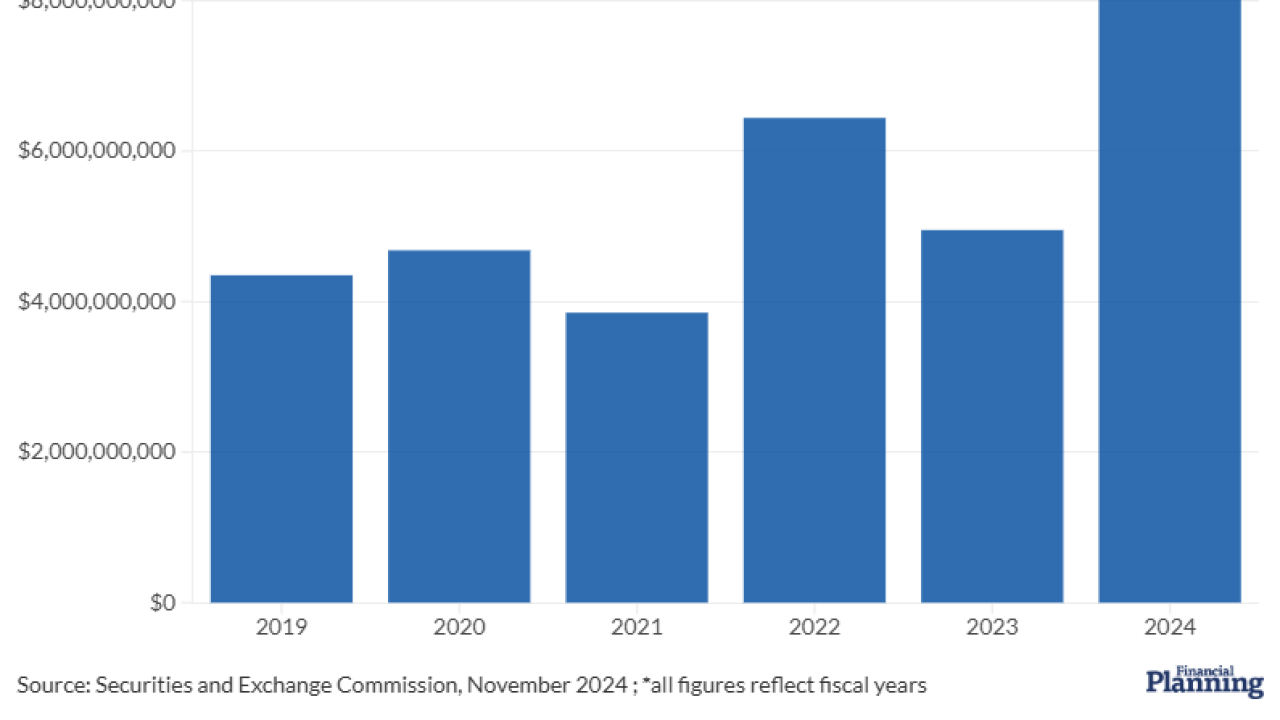Advisors help plan their clients’ futures day in and day out, but when it comes to their own planning, too often it is a case of the cobbler’s kids not having new shoes.
For advisors that have yet to put together a formal business plan, hopefully this article is a wake-up call to do so. For advisors that have created a business plan there should be a few points below that can help improve what you might already have created.
Here are ten tips to do a successful business plan.
1. Document the Plan
A strength of advisors, as a whole, is that they are very intelligent. You have to be in order to pass the difficult tests to attain designations and to keep up with an ever-changing industry. However, that strength can sometimes be a weakness. Too often advisors think they can keep a plan in their head. Being naturally smart, they can easily rationalize why they might not achieve a goal months down the road. A simple written plan helps them keep themselves accountable.
Deb Wetherby, CEO of Wetherby Asset Management in San Francisco says that a main reason for her success has been that every year she does a business plan, even if some years it was just a list with ten things to accomplish. She said, “I am a real fan of the written word. When you write it down, you stick to it.”
2. Start with the Big Picture
Before advisors launch into the details, they should write an introduction that includes their mission statement and value proposition for their practice. Such key orienting pieces will help guide all business planning decisions.
Pat O'Connell, a senior vice president at Ameriprise Advisor Group, Ameriprise Financial agrees. He said “It is critical to advisors’ success to have their mission, vision and core values in their business plans. Advisors shouldn’t cut right to the goals, because when they have this information front and center, it helps answer a lot of questions.
According to Gabe Garcia, director and relationship manager at Pershing Advisor Solutions, “Advisors should create and add a value proposition. It is important to know what’s the promise advisors are going to deliver on
3. Keep it Simple
The best plan probably is not on the back of a cocktail napkin, but at the same time it should not be too cumbersome. If a plan looks like a college research paper, it will end up gathering dust. To be effective, the plan needs to be clear and to the point.
4. Narrow the Focus
Advisors need to realize they cannot do it all. Too often they have way too much on their plate. When drawing up their business plan, they need to determine the top three to five initiatives and not lose sight of them. Think of a juggler balancing numerous balls at once. If one too many balls get thrown in, what happens? They all drop to the ground. Advisors need to recognize they cannot do everything at once and need to limit their focus to accomplish the most important things in an extraordinary fashion.
Each initiative should have defined goals and objectives to help the advisor manage the business throughout the year. Byrnes Consulting has a process of developing the BEST goals: business-driven, effective, specific and timely.
5. Manage the Process
Putting dates next to specific tasks creates measures of success that can be tracked on a dashboard using a color coding system (red = underperfroming , yellow = at risk of falling behind, and green = ahead of plan).If advisors use these techniques and then see that initiatives are red across the board, it is much easier to make improvements in the short term than it is to realize the issues when the year is almost over and the goals will be missed.
“Advisors need to spend more time thinking about ‘how’ they will execute the plan versus the ‘what’ they aspire to achieve,” says Mark A. Ricca of the Practice Management Consulting Group at Merrill Lynch Wealth Management. “Advisors generally fail to hit business plan targets because when they create plans with too much attention focused on what they will do next year. Not nearly enough attention is targeted to how they will execute their plan.”
For example, if your goal is that you want to double in size next year, you have to first define what that means and then ask yourself whether this goal is realistic and achievable. Does doubling in size mean, assets under management, number of clients, revenue or something else? Is this achievable? Once advisors clarify what they are striving for, they now have specific measurable goals to monitor throughout the year.
6. SWOT It
Before finalizing a business plan, there is one exercise that can help make it better. For half a century, businesses have been using a simple tool called a SWOT analysis. SWOT stands for: strengths, weaknesses, opportunities and threats. Typically these sections are broken into a four-quadrant box as shown here.
Advisors should list macro and micro factors, as well as internal and external factors that influence the mission of the organization (or focus on a specific program.) All items should be listed, whether they are in an advisor’s control or not (e.g your marketing vs. your competitors marketing.)
When the grid is completed, advisors should look for the possibilities of matching strengths and opportunities to make their business more successful. For example, if a strength is that advisors work well with retirees and the opportunity is that a new retirement village is going up in the region, this something that should be put in the plan.
They should also ask the question, “Will my weaknesses and threats gravitate together?” If so, they should consider minimizing exposure to these factors or dedicating resources to improve the deficiencies. For example, if an advisor’s weakness is around the level of experience with insurance products and the threat is that regulation is changing insurance products, the plan should include steps to get more sufficient in that area or to look at outsourcing those services.
7. Share Ownership
An advisor can improve a plan by getting input from all stakeholders, from clients to staff members. Sometimes the best ideas come from the people we least expect. Additionally, the more individuals feel like they contributed to a plan, the more they will have a vested interest in seeing the plan succeed.
For example, if your assistant is responsible for creating, organizing and implementing all marketing events, giving him or her a say in the planning process will allow him or her to understand the big picture and be more motivated to implement the plan properly.
“Advisors should involve key staff in the planning. This helps get great insight and buy in,” says George Tamer, director of institutional sales at TD Ameritrade. He recommends also, putting some “skin in the game for the staff. If a goal is hit, give the person who suggested it a bonus, even if it is as simple as a gift card.” Keeping staff involved in the business planning process helps retain them as well, he says. “Plus, it then is a tool to measure, manage and reward.”
8. Always Focus on Client Service
Every business plan should include an element of improving client service, with a desired outcome of improved retention. It’s less expensive and easier to keep an existing client than find a new one. It’s also easier to get a new client from an existing one. Research clients in one-on-one meetings, surveys, focus groups and even by creating advisory boards Ask what they like the most about your service and where they have suggestions for improvements. Then look for ways that services can be improved. By asking, advisors are giving their clients a stronger voice which will improve their satisfaction levels – just make sure what they are say is heard and acted upon.
Steve Kruchten, President of Bremer Investment Services, shared, “What is best for the customer comes first.” Specifically he is working to “make sure all new clients have an onboarding process” including communications they receive after 5 days, 7 days and later in the first quarter.
9. Look at the Short and Long Term
There is no rule stating a business plan has to just be a 12-month period. Certain initiatives might need urgent attention, while others might be for farther down the road. A plan should take both into account.
Todd Clarke, President of CLS Investments, LLC, admits they have a three to five-year vision, but has “shortened the plans to trimesters. With 120-day plans, everyone on the team holds each other accountable, as you have to keep on it all the time. The shorter plans make it so you just can’t take the month off.”
On the other hand, Kim Dellarocca, Director of Global Marketing at Pershing LLC said “advisors should ask ‘What does the next five years look like? Will there be new sources of revenue? Will there be market disrupters?’” Although no advisor has a magic ball, she gave an example of a simple threat like Mint.com, which is now providing some planning tools and information similar what financial advisors are using with their clients. When looking further out in the industry, she added it is an opportunity for the “next generation of leadership.”
10. Use It
A common mistake advisors make is to give their business plan attention for a week or two and then forget it. Advisors need to set reoccurring time on their calendars to revisit their goals on at least a quarterly basis, if not more frequently. This helps advisors stay on track, providing warning signs if a major initiative is falling behind. There is no reason business results at the end of a year should be a surprise.
“Business plans need to be a working document, like a financial plan. It’s not a snap shot in time, so it shouldn’t sit on the shelf” said Sheryl Garrett, founder of The Garrett Planning Network, Inc.
Interestingly enough, she added that advisors “can’t do a business plan in a weekend. They need to dwell in the muck.” Advisors have to get their hands dirty when it comes to planning – it will not just magically appear. More inspiration for advisors to get working on their business plans now. Hopefully this planning advice helps your business become more successful!
Mike Byrnes founded Byrnes Consulting to provide consulting services to help advisors become even more successful. His expertise is in business planning, marketing strategy, business development, client service and management effectiveness, along with several other areas. Read more at





